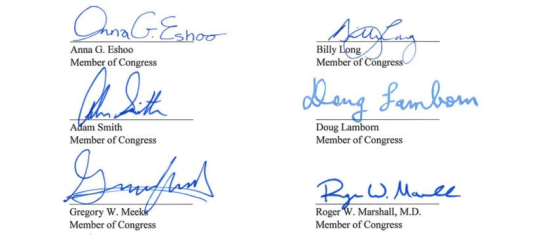House lawmakers supporting the T-Mobile / Sprint merger have taken over $2.4 million dollars from telecom giants

FOR IMMEDIATE RELEASE, January 29, 2019
Contact: Evan Greer, 978-852-6457, press@fightforthefuture.org
Letter supporting mega merger signed by 13 lawmakers contains unsubstantiated claims about consumer benefits.
Late Monday afternoon, POLITICO reported that a small handful of House lawmakers had issued a letter to the Federal Communications Commission (FCC) and Department of Justice (DOJ) supporting the merger of T-Mobile and Sprint. Led by reps Anna Eshoo and Billy Long, the letter misleadingly claims that that the merger will “provide consumers with lower costs,” even though experts have shown that less mobile competition will lead to higher wireless costs for the entire country, hurting marginalized and low-income communities the most.
Responding to this Monday’s letter. Fight for the Future Deputy Director Evan Greer (pronouns: she/her) had this to say:
“This letter looks like it was written by a T-Mobile lobbyist. No elected representative in their right mind should be supporting a merger that will lead to higher cell phone bills and fewer jobs for their constituents. How can anyone believe that less competition will lead to lower prices? Even Sprint and T-Mobile’s own FCC filings have indicated that prices will rise after the merger. We’re particularly disappointed to see Democrats who previously fought the FCC’s net neutrality repeal lining up to support a massive handout for T-Mobile and Sprint executives. It’s sad but unsurprising, given that the letter’s signatories have collectively taken over $2.4 million dollars from Internet service providers over the years. Politicians should have learned by now that they can’t bend over backwards to put telecom giants ahead of their constituents and expect to get away with it.”
Fight for the Future is leading an online campaign asking Congress and the FCC to reject the merger at https://www.thismergerwillmakeyourcellphonebillmoreexpensive.com/. To date over 70,000 people have taken action to stop the merger through online petitions run by digital rights groups including Fight for the Future, Free Press Action Fund, Demand Progress, Common Cause, Center for Media Justice, and OpenMedia.

